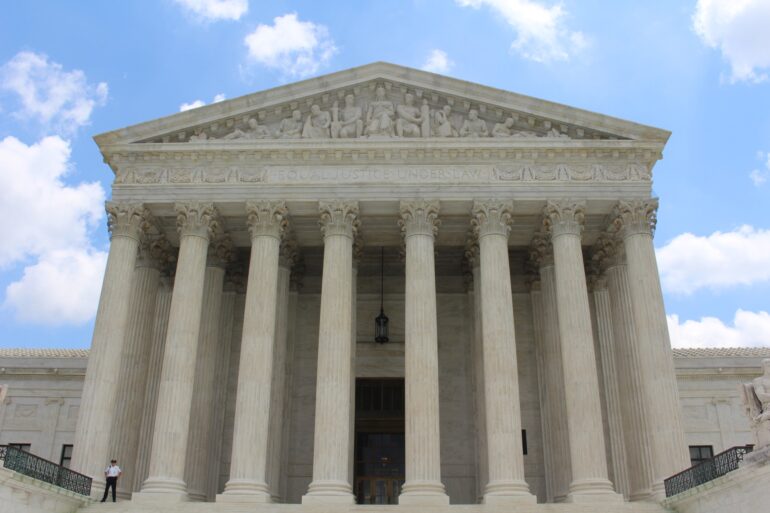On the evening of Monday, May 2, Politico released a now-confirmed leaked draft opinion from the Supreme Court, stating that they have voted to overturn Roe v. Wade — the landmark decision which guaranteed federal constitutional protections of abortion rights. The leak is an unprecedented action, one that has left the often covert Supreme Court — and country at large — in a tailspin.
Not only is Roe‘s fate on the table, but, by extension, that of the controversial 1992 Planned Parenthood v. Casey ruling as well. “We hold that Roe and Casey must be overruled,” Justice Alito writes in the leaked “Opinion of the Court.” “It is time to heed the Constitution and return the issue of abortion to the people’s elected representatives.”
Although the court’s 5-4 opinion ruling will not be final until it is published — likely in June — this draft opinion gives a glimpse into the justices’ deliberations, and indicates the court is looking to reject Roe’s logic and legal protections, leaving abortion rights up to each state.
What will happen if Roe is overturned? Here’s what we know:
The Guttmacher Institute, a leading research and policy organization committed to advancing sexual and reproductive health and rights in the United States, states that if Roe is weakened or overturned, 26 states are certain or likely to ban abortion.
“As of right now, abortion is still legal in all 50 states. But Roe alone was never enough to protect abortion rights and access, and the leaked US Supreme Court opinion foreshadows a future that will be dramatically worse,” said Dr. Herminia Palacio, Guttmacher Institute President and CEO, in a released statement.
“We know from decades of research that the impact will fall hardest on those who already struggle to access health care, including abortion,” she added.
The below 13 states have trigger laws in place, and if Roe is overturned, abortion will be illegal immediately:
- Arkansas
- Idaho
- Kentucky
- Louisiana
- Mississippi
- Missouri
- North Dakota
- Oklahoma
- South Dakota
- Tennessee
- Texas
- Utah
- Wyoming
Five other states have a decades-old abortion ban that could be enforced again:
- Alabama
- Arizona
- Michigan
- West Virginia
- Wisconsin
14 states could restrict abortion to 22 weeks or possibly earlier:
- Alabama
- Arizona
- Florida
- Georgia
- Indiana
- Iowa
- Kansas
- Montana
- Nebraska
- North Carolina
- Ohio
- South Carolina
- West Virginia
- Wisconsin
California, Maine, Illinois, New York, Washington and Oregon have some of the best reproductive rights laws in the U.S., and have expanded access to reproductive health in recent years.

